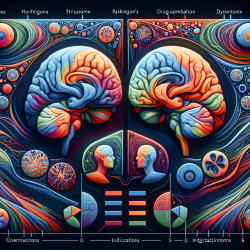Introduction
The increasing awareness of climate change has led to the emergence of eco-concern, a form of emotional distress associated with environmental issues. Recent research has explored the intersection of eco-concern and disordered eating, a relatively uncharted area in the field of mental health. The study titled "Development and Validation of an Eating-Related Eco-Concern Questionnaire" provides valuable insights into this intersection by introducing the Eating-Related Eco-Concern (EREC) scale, a tool designed to assess the impact of eco-concern on eating behaviors.
Key Findings from the Research
The study validated the EREC scale, which demonstrated strong psychometric properties, including construct validity, convergent validity, and internal consistency. The scale was found to have a significant correlation with the Climate Change Worry Scale (CCWS), indicating that individuals who are generally worried about climate change may alter their eating behaviors due to eco-concern. However, the EREC scale showed a weak correlation with the Eating Disorder Examination-Questionnaire (EDE-Q), suggesting that it captures a distinct construct from general disordered eating.
Implications for Practitioners
For practitioners working with individuals experiencing disordered eating, the EREC scale offers a new dimension to consider. It highlights the potential influence of environmental concerns on eating behaviors, which may not be captured by traditional assessments of disordered eating. Practitioners should be aware of the following:
- Eco-concern can manifest in specific eating behaviors, such as avoiding certain food groups or choosing organic foods, which may not initially appear as disordered eating but could develop into more concerning patterns.
- Screening for eco-concern can provide a more comprehensive understanding of a client's eating behaviors and underlying motivations.
- Understanding the role of eco-concern in eating behaviors can aid in developing more tailored interventions that address both environmental concerns and disordered eating patterns.
Encouraging Further Research
The study opens up new avenues for research into the relationship between eco-concern and disordered eating. Future studies could explore the following areas:
- The impact of eco-concern on different demographic groups, including children and adolescents, who may be particularly vulnerable to climate change-related distress.
- The potential for eco-concern to exacerbate existing eating disorders or contribute to the development of new disordered eating patterns.
- The effectiveness of interventions that address both eco-concern and disordered eating, and how these interventions can be integrated into existing therapeutic practices.
Conclusion
The EREC scale represents a significant advancement in understanding the intersection of environmental concerns and eating behaviors. By incorporating this tool into practice, clinicians can gain a deeper insight into their clients' motivations and develop more effective treatment plans. As the field continues to evolve, further research will be crucial in expanding our understanding of this complex relationship and improving outcomes for individuals affected by both eco-concern and disordered eating.
To read the original research paper, please follow this link: Development and Validation of an Eating-Related Eco-Concern Questionnaire.










